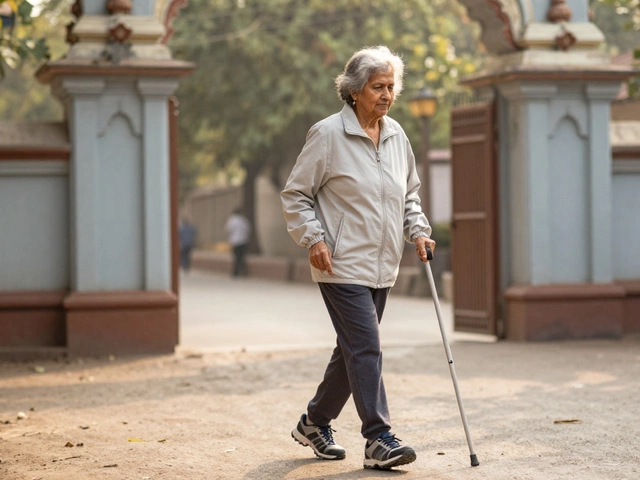Lose Weight After 50: Practical Tips That Actually Work
If you’ve hit the half‑century mark, dropping a few pounds can feel harder than it used to be. Hormones shift, metabolism slows, and some medicines can add extra calories or water weight. The good news? Small changes add up, and you don’t need a drastic diet or a marathon to see results. Below are simple steps that fit into a busy life and keep your health safe.
Start with Nutrition Adjustments You Can Stick To
Instead of cutting entire food groups, focus on portion control and smarter swaps. Try a palm‑sized serving of protein (fish, chicken, paneer) at each meal, and fill half your plate with non‑starchy veggies like spinach, carrots, and cauliflower. Swap white rice for a ½ cup of brown rice or quinoa a few times a week – the extra fiber helps keep blood sugar steady, which is key for weight control after 50.
Watch hidden calories in beverages. A cup of tea or coffee with two teaspoons of sugar can add 30‑40 calories. Switch to plain tea, black coffee, or add a splash of milk instead of sweeteners. If you enjoy a daily soda, replace it with sparkling water flavored with a squeeze of lemon; you’ll cut out about 150 calories without feeling deprived.
Move More, Stress Less
High‑impact workouts aren’t required. Start with a 20‑minute walk after dinner – that simple habit can boost metabolism and improve digestion. If you’re comfortable, add a short strength routine twice a week: body‑weight squats, wall push‑ups, and seated dumbbell curls. Building muscle helps counteract the natural loss of lean mass that comes with age, and even a few minutes a day can raise your resting calorie burn.
Don’t forget flexibility and balance. A gentle yoga flow or tai‑chi session can reduce joint stiffness and lower the risk of falls, making it easier to stay active. Consistency beats intensity, so choose activities you actually enjoy and can do regularly.
Lastly, check your medication list. Some drugs for diabetes, depression, or high blood pressure can cause weight gain or increase hunger. Talk to your doctor about possible alternatives or dosage tweaks. Sometimes a small change in prescription can unlock a smoother weight‑loss journey without compromising your health.
Remember, losing weight after 50 isn’t about rapid results; it’s about steady, sustainable habits. Keep track of what you eat, stay active in ways that feel good, and stay informed about how your medicines interact with your diet. With these practical steps, you’ll see the scale move in the right direction while feeling stronger and healthier.

How to Lose 20 Pounds Quickly After 50
Losing weight after 50 can feel challenging, but with the right approach, it's definitely achievable. This article offers practical tips to help shed those stubborn pounds quickly and healthily, especially for those over 50. From adjusting your diet to tweaking your workout routine, we'll explore effective strategies that align with your lifestyle. Keeping the focus on sustainable methods ensures lasting weight loss success without compromising your health.




